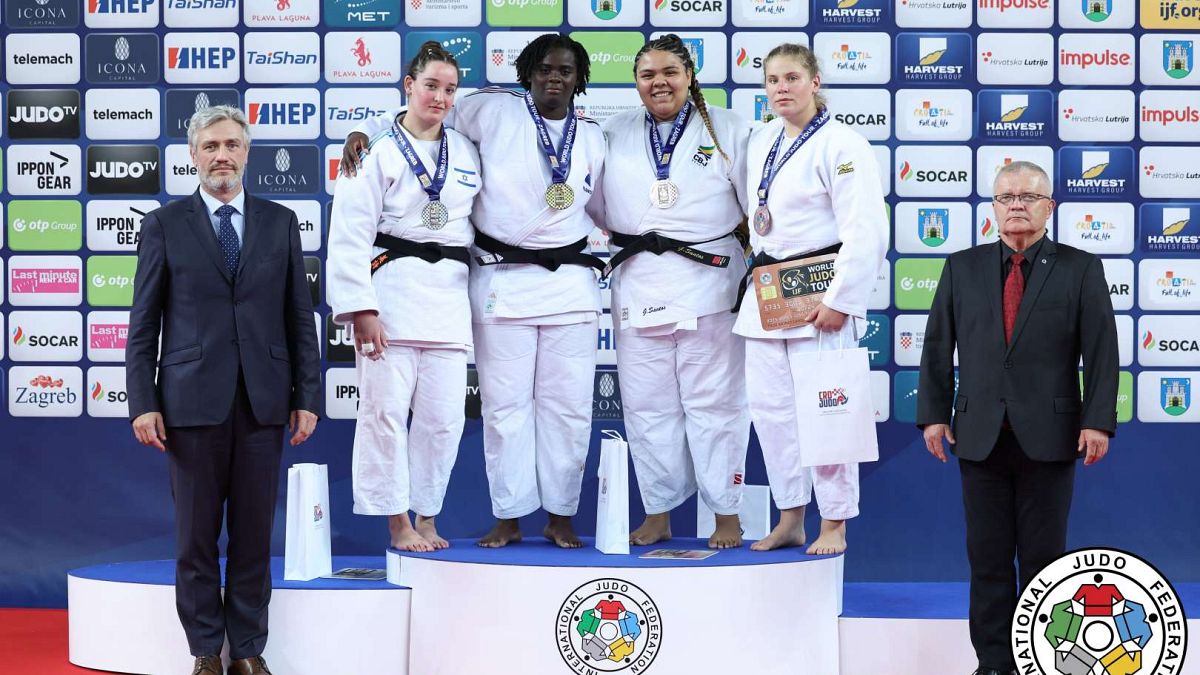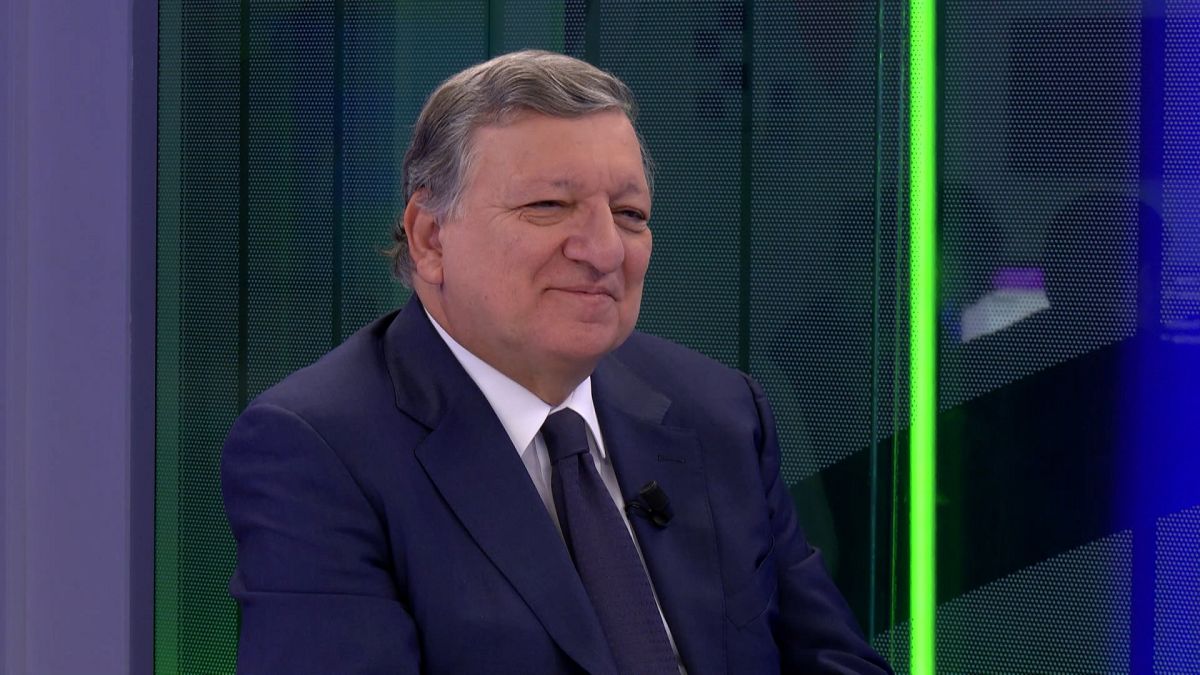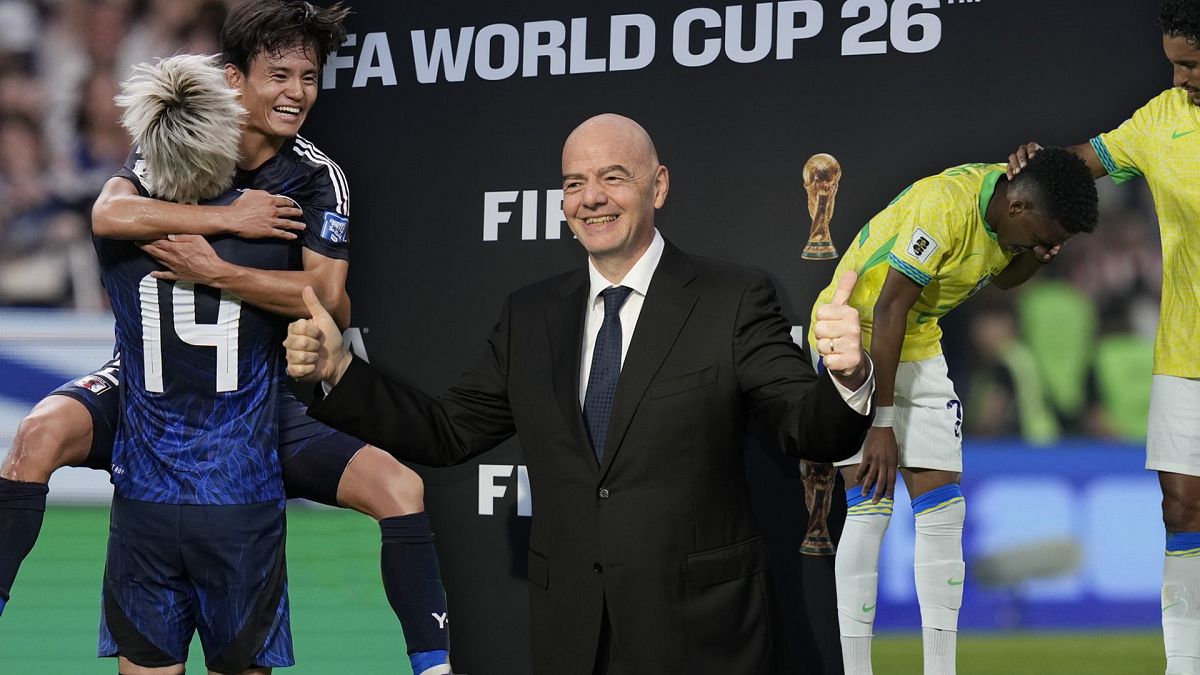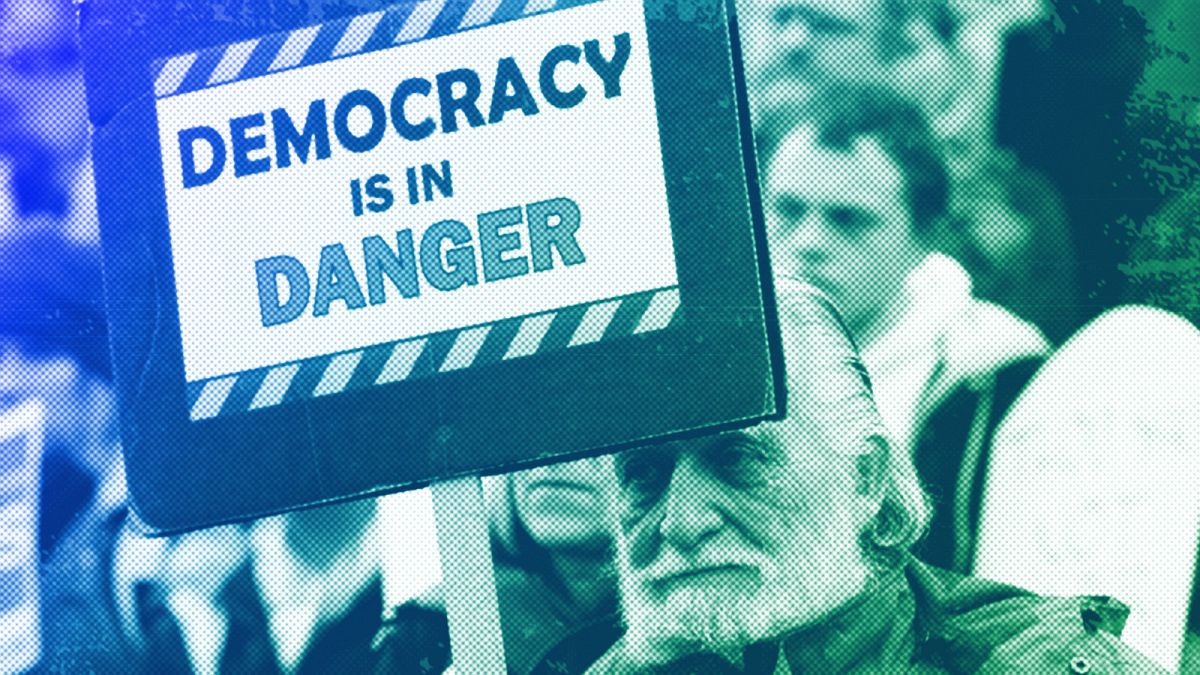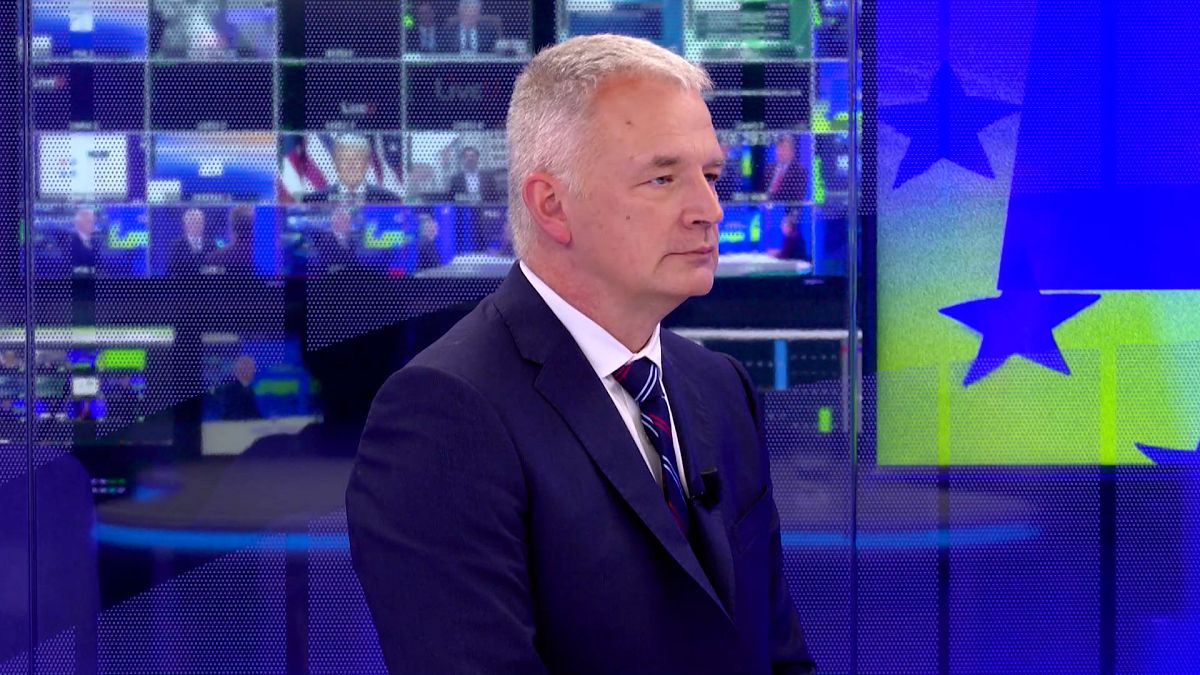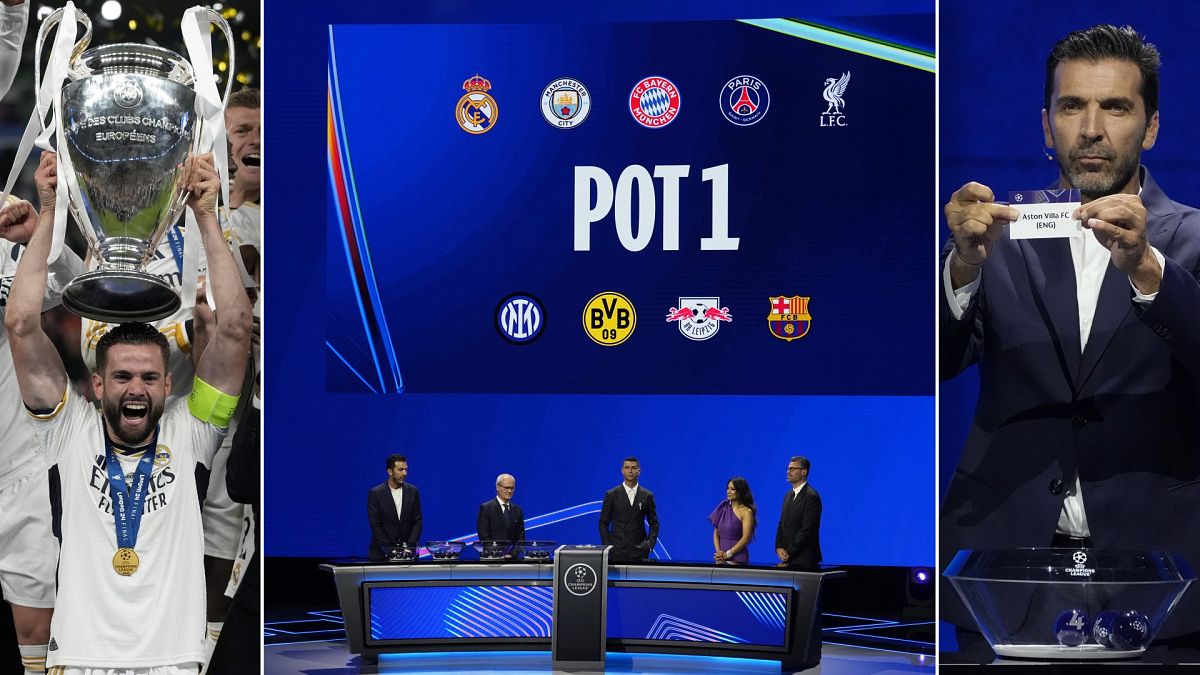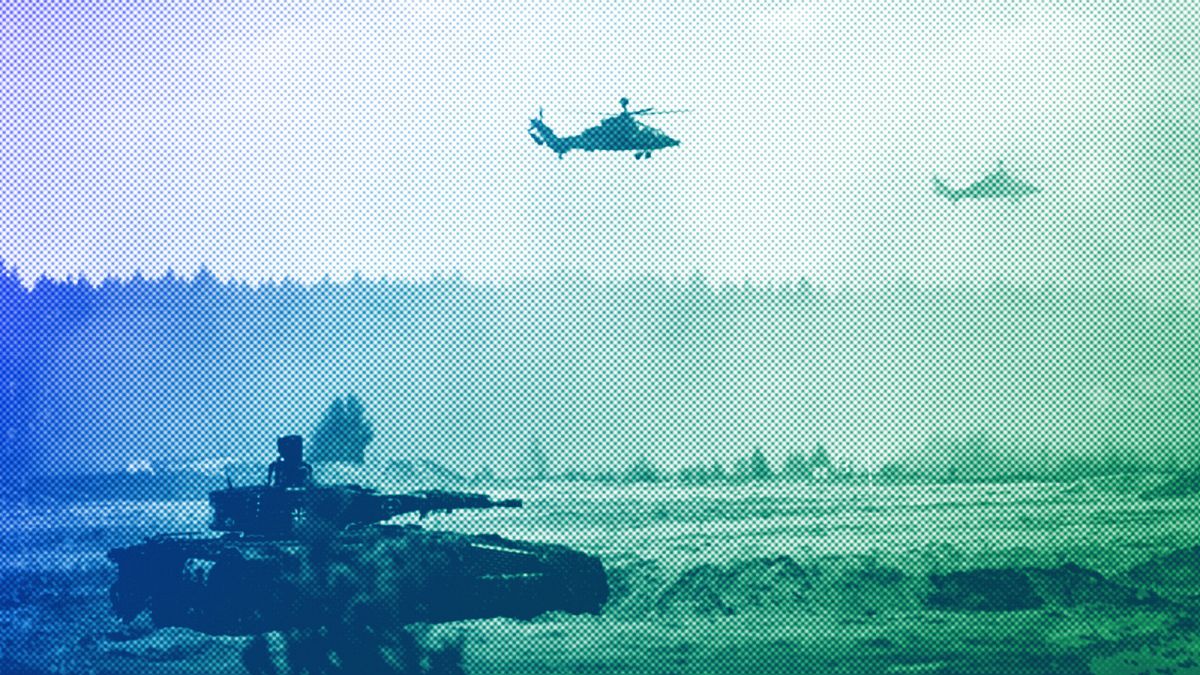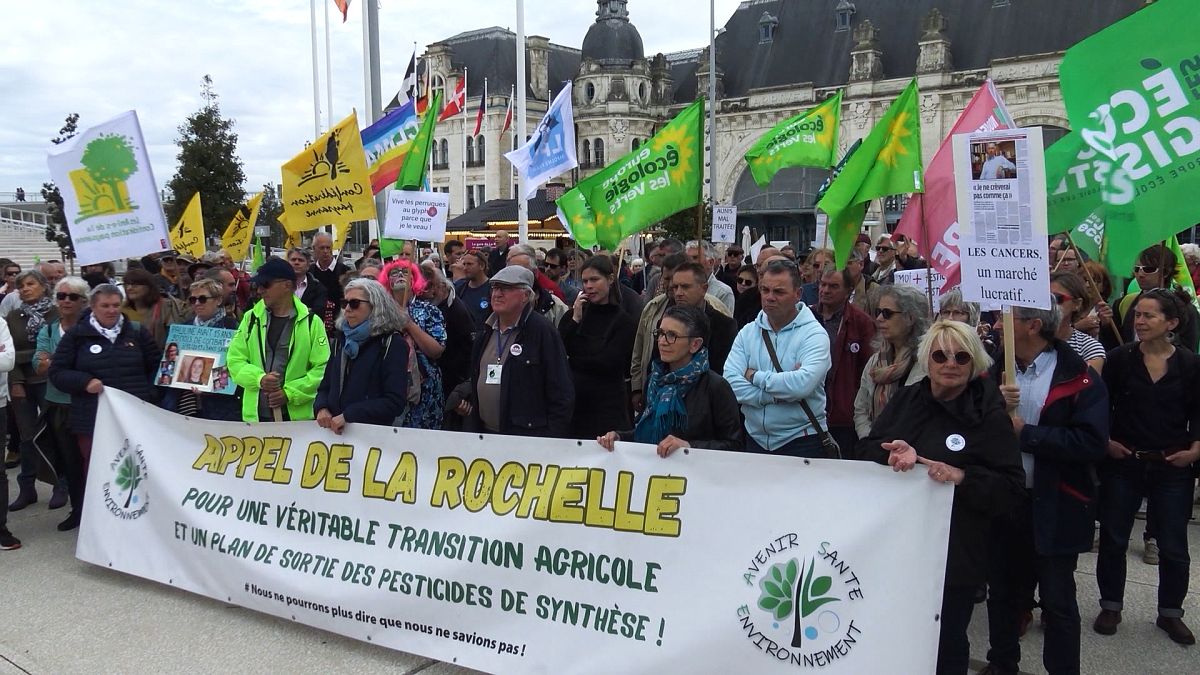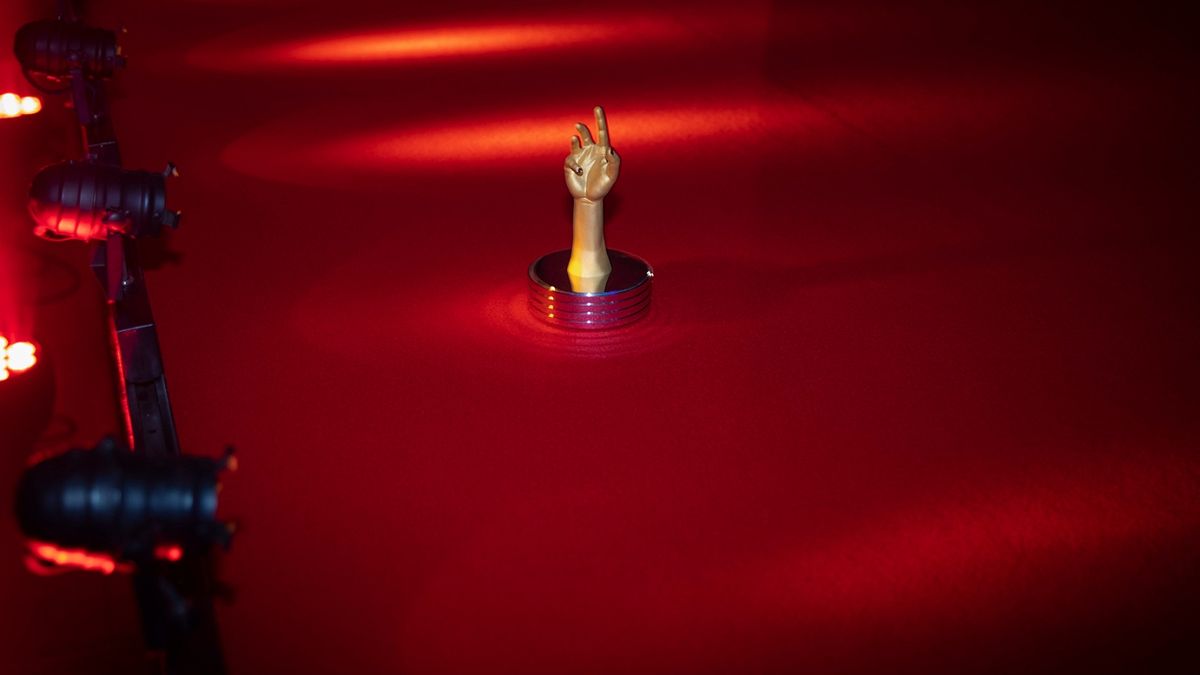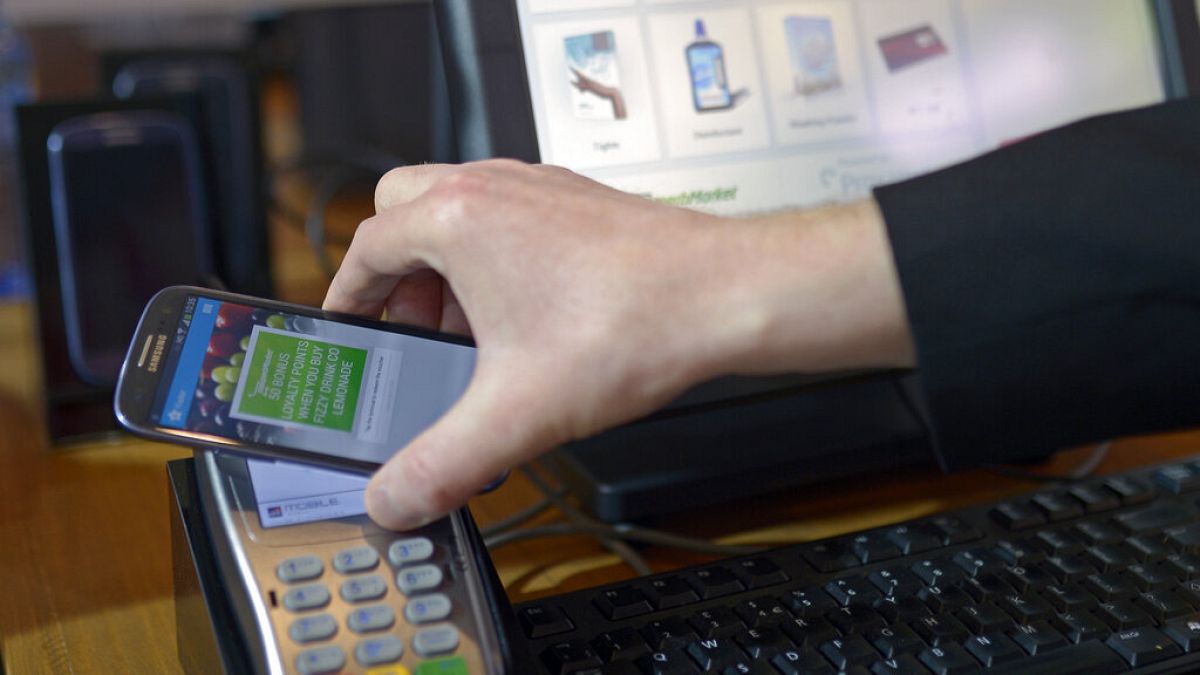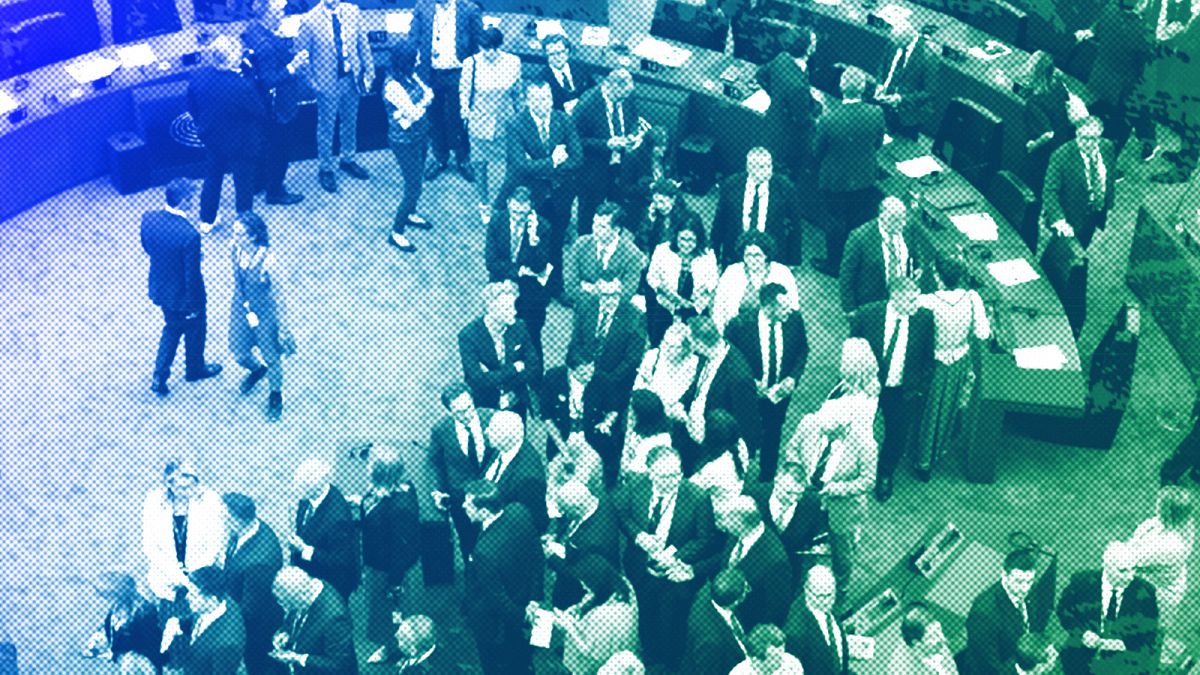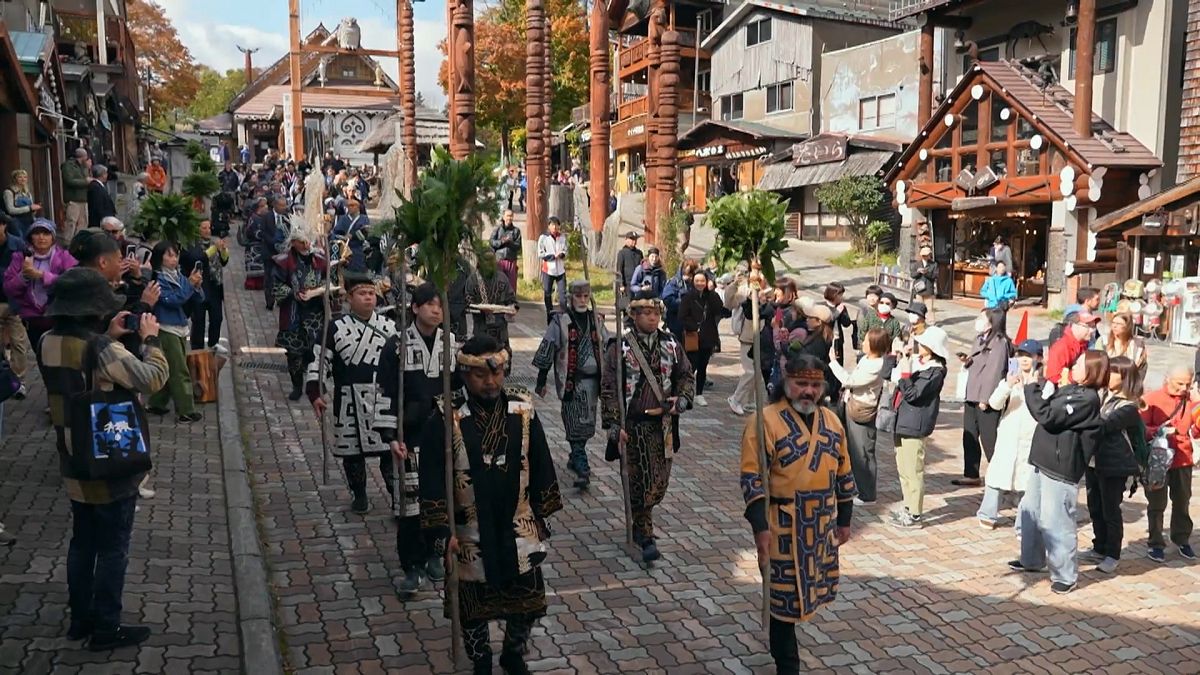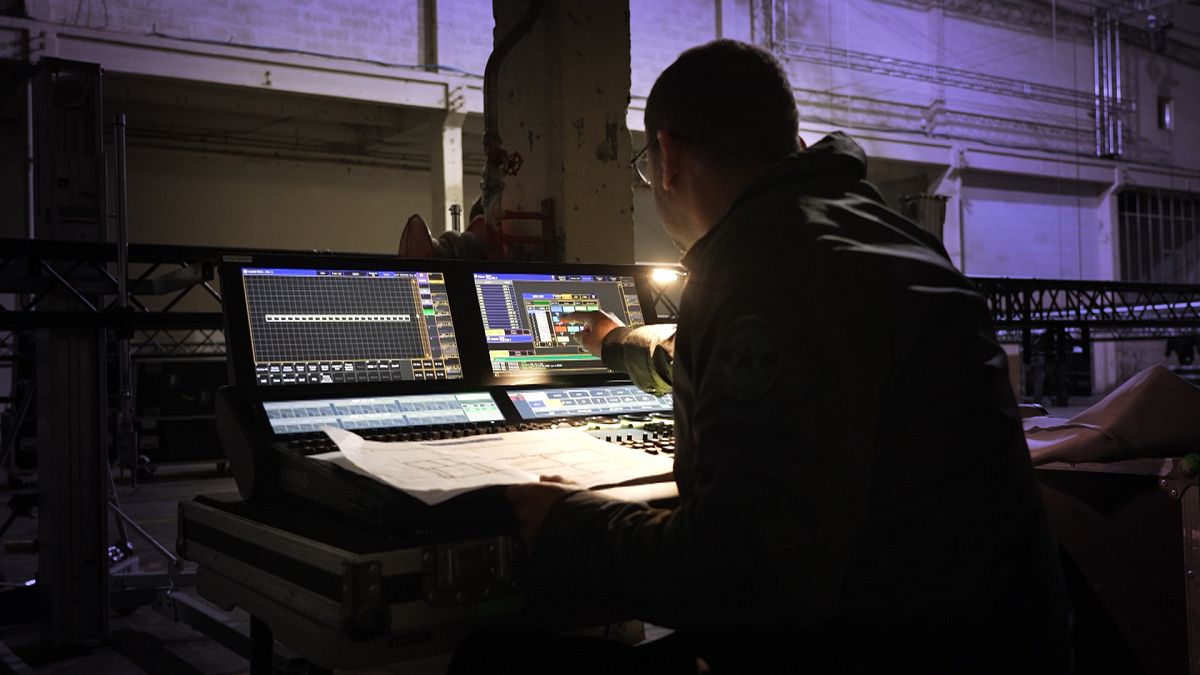Q&A: Our addiction to plastic has to end, No More Plastic founder says
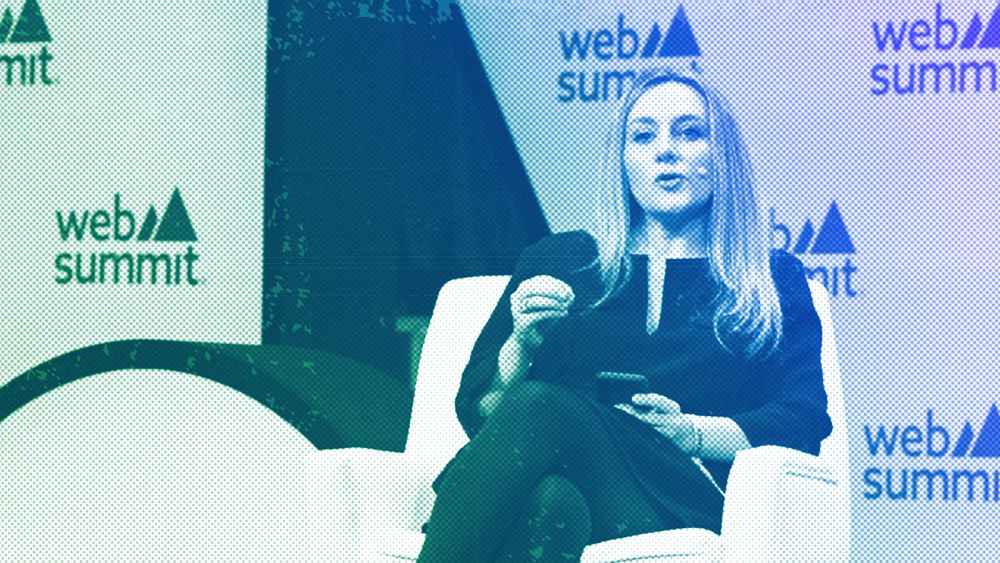
The opinions expressed in this article are those of the author and do not represent in any way the editorial position of Euronews.
At this year’s Lisbon Web Summit, Euroviews talked to Rosalie Mann about the reasons why we are oblivious to the dangers plastic poses to our health and our environment, and the different ways to reduce the hazards we face almost unknowingly.
From the most remote depths of the ocean to the deepest section of the lung, microplastics appear to have invaded every bit of our lives, including our bodies.
More than 8.3 billion tonnes of plastic has been produced by humans since the 1950s, 79% of which has ended up in landfill and the natural environment. Since then, microplastics have been found in soil, air, and plant and animal life in all corners of our planet.
As for humans, in recent years, research has shown that these microscopic particles can be found in our organs, our bloodstream, and the placentas of pregnant women.
An April 2022 study by the Medical University of Vienna has revealed that on average, five grams of plastic particles enter the human gastrointestinal tract per person, per week — or the rough equivalent of one plastic credit card.
“The particles can trigger local inflammation and immune response, and nanoplastics in particular have been found to trigger chemical pathways involved in the formation of cancer,” the study stated.
Another study, published by scientists at the University of Rhode Island in August, suggests that these small particles could even induce behavioural changes, affecting the way we think, act, and perceive the world around us.
At this year’s Lisbon Web Summit, Euroviewsspoke to No More Plastic founder and president Rosalie Mann about the reasons why we are oblivious to the dangers plastic poses to our health and our environment, as well as the ways in which we could change our approach to reduce the hazard we face almost unknowingly.
Euronews View: Let’s start with humanity’s infatuation with plastic. Where does it come from and how troubling is it?
Rosalie Mann: Our society is completely addicted to this material. It’s crazy. But the truth is, the economic system is the one truly addicted to this material because plastic right now is a low-cost material, and due to that we are producing exponential amounts of plastics.
We are addicted because we have no choice as consumers. Sometimes you buy products containing plastic and you don’t even know that. For example, chewing gum, tea bags, tampons, sanitary napkins… it’s insane.
It’s crucial for society to have a bigger vision for the future, exploring how we can replace these materials with new materials, or existing alternatives.
Many alternatives already exist, but we stopped producing them, such as glass. Yet, today we can create glass with algae, a type of aquatic plant rich in silica, which can be processed to extract silica compounds. Silica is a key component in traditional glass-making, as it contributes to the transparency and strength of the final product.
Using algae as a source of silica for glass production is an innovative and potentially sustainable approach, as it taps into renewable resources and reduces reliance on traditional silica sources. Additionally, algae cultivation can have environmental benefits, such as carbon dioxide absorption and oxygen production.
Contrary to the belief that we’ve exhausted all possibilities, there are still unexplored avenues for the future. Sometimes people tell me, ‘Oh, no, we cannot live without plastic in our lives.’ It’s completely untrue.
We live in the age of plastic, more so than in the digital age. It’s imperative to put an end to this trend because it jeopardises not only our health but also the well-being of wildlife.
Euronews View: When talking about your engagement with No More Plastic, you mentioned that the big eye-opening moment for you was the realisation that we are on a collision course with disaster. Yet, it seems that most of us go about our daily lives without understanding just how bad things are. What can be done to change this?
Rosalie Mann: My awakening came rather late. It was one year before I founded No More Plastic.
I’m the perfect proof that we can change direction at any moment. So I think lots of people can do the same.
I became aware of it because my son was very sick, and one night at the emergency room a doctor told me something that I can never forget: “It’s normal, it’s pollution.”
For me, hearing these two words in the same sentence was an electroshock. I asked myself, how is it possible to live in a society where we tolerate and live with this pollution?
And it was at that precise moment that I decided to take action. I wanted to understand what exactly affected so many children because today, plastic pollution, microplastics and nanoparticles of plastic are a part of air pollution.
We have so many children born already exposed to pollution and with asthma crises and difficulty breathing etc. We cannot continue like that. I refuse to be the witness of so many children living with disease that we could avoid if we were not living in denial or inaction.
So for me, it’s really important to explain to people that we can change that.
We can change that with our voice — not with our consumption; it’s not true, the consumer is not responsible at all for this pollution, we have to stop with this — with our voice. We have so much power with this voice that we have. We have all of our community and right now with the Global Plastic Treaty, we have a historic opportunity to change that.
So that’s the reason why we launched a pledge that people can sign and understand how we can stop all of this.
We have to reduce the production of plastic. Today, we produce more than 460 million tonnes of plastic. Can you imagine that? It’s huge!
So, we have to limit the production because we produce too much. And because we produce too much, we are more exposed to microplastics and nanoparticles.
Lots of people think that plastic pollution starts when the product is sent to waste but it’s not true. It started long before: from the beginning, during its use, and after, while degrading in the environment. And throughout its life cycle, plastic generates microplastics and nanoplastics. It’s very important to understand that.
I have a straightforward illustration for you. Every time you wear your sneakers and take a step, you produce microplastics through the friction generated against the ground. Can you picture that?
Similarly, the scenario applies when you use your bike because the tires are also made of plastic. This is why consumers cannot be held responsible for this plastic pollution.
The question should not be why are we buying these products. The real question should be, why do we have only those products that predominantly contain plastic on offer? Why don’t companies provide more alternatives and sustainable products? That is a good question.
We need to stop judging ourselves. We are all victims of this pollution right now. The truth is that the economic system is addicted to this material and we have to stop it.
Euronews View: Is the shock approach by some of the NGOs and activist groups actually working, in your opinion, or would there be a better way about it? Could you tell us a bit more about this?
Rosalie Mann: Our approach is completely different, because I think the most important thing is to understand the question and the situation globally, and not just boycott this or that, etc. We’ve attempted that before, and it has proven ineffective. Therefore, I advocate exploring novel strategies.
Today, the most important matter is to understand exactly what the problem is and we will find the solution together.
Because we won’t stop using cell phones. We won’t stop using computers. We live in a modern society. So we have to see how we could continue to live in this modern society, but not to the detriment of our health and wildlife health. That’s the genuine question, instead of just saying, ‘We have to stop overconsumption.’
Of course, both overconsumption and overproduction are terrible, and we have to stop, yet we will still continue to consume in the future. So a realistic point of view is how to produce with less impact on the health of our children. That’s the main question for me.
Euronews View: What about our disillusion with recycled plastic? What are some of the more common misconceptions?
Rosalie Mann: Wow, it’s a huge, huge question for me. Recycling plastic is absolutely not a solution. In my opinion, we need to discontinue it as soon as possible. Recycling plastic wastes our precious time and also fosters the false impression — the illusion — that it’s a good idea, it’s the viable solution to resolve the problem. It’s absolutely not true.
Because plastic is made with chemicals — many of which are inherently toxic. When you recycle, you put those chemicals back in the loop again and again and again, and you generate more and more microplastics and nanoplastics that we will ingest and breathe. Can you now grasp the true nature of the problem?
The crux of the issue lies not in finding ways to increase recycling efforts but rather in putting an end to the use of chemicals associated with plastic. The chemicals comprising plastic made from fossil fuels pose a significant threat to our health. A group of health scientists attending the Global Plastic Treaty discussions in Nairobi proposed a new draft to the UN that explicitly addresses the impact on human health.
This is a crucial development because we often overlook the vital aspect of human and wildlife health, fixating instead on how to reintroduce plastic into our lives. The emphasis should be on cessation rather than perpetuation.
What further compounds the danger of recycled plastic is the way it’s portrayed as an eco-friendly solution. Companies and individuals who use it are celebrated and even awarded for their efforts. This is absurd, and future generations will find our blindness to the reality of the situation bewildering.
Recycled plastic is marketed as a scourge, falsely presented as a material that contributes to saving the planet, when, in reality, it worsens plastic pollution and climate change.
We have to stop treating plastic as a precious resource that can be reintroduced into circulation through recycling or reuse.
It is high time to redirect the billions currently allocated to recycling towards the development of techniques based on the use of enzymes to eradicate toxic plastic waste that pervades the oceans, lands, and mountains.
Euronews View: You also mentioned treaties and regulations as a key way of limiting the danger of plastic. What would be your message to the decision-makers in Brussels and elsewhere when considering these legal initiatives?
Rosalie Mann: My message to Brussels is to stop their goal of achieving 100% of plastic recycling by 2030. This target, set for the near future — 2030 is practically tomorrow — raises the question: Why? Why make this decision when numerous studies indicate that plastic recycling is directly linked to health issues such as infertility, cancer, endometriosis, obesity, cardiovascular disease, and more?
So, what’s happening with them? We must cease the notion that we can reuse or put this toxic material back into circulation. We have to stop with that. It is crucial to impose taxes on plastic at the source, as the current low cost of plastic makes it economically much more attractive.
Again, if we were looking to change, alternatives already exist. For example, swimwear can be made from wool, and various natural fibres are available. So, why stick solely to plastic?
The two industries most prolific in all this pollution — packaging and textile – account for over 50% of total production. Just imagine, if we were to decide to eliminate plastic from these two industries tomorrow, we could resolve more than half of the problem.
The question persists: When will we make this decision? This is precisely why I named my foundation “No More Plastic.” The message is clear, and I hope it resonates.
Source: Euro News


